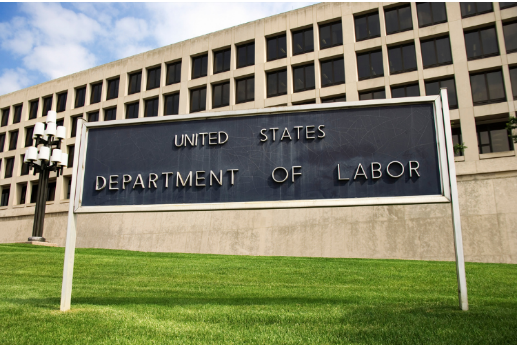Dr. Ba Van Doan graduated from the University of Saigon Medical School where he completed an initial residency in General Practice and then an Ear, Nose, and Throat residency.
Early in his military career, Dr. Boan served with distinction as battalion surgeon with the highly regarded Vietnamese Airborne Division. Later, he commanded the Airborne Division’s hospital and then the 4th Field Military Hospital, the latter a 400 bed facility. In late January of 1968, Dr. Doan traveled to his home in Hue to enjoy a few days of relaxation in celebration of the Vietnamese Lunar New Year. While a truce had been agreed to between the warring parties for that important holiday season, the North Vietnamese launched a surprise and massive attack across the country that has subsequently become known as the “TET Offensive of 1968.”
Awakening that morning, Dr. Doan found himself trapped behind enemy lines at a relative’s home, so he began weighing his limited options. He knew his fate if captured, so he decided to see whether he could reach a section of the city where he knew U.S. military units had previously been stationed. Carefully avoiding enemy units and patrols, he began working his way from building to building until he reached a bridge where a major battle was raging.
A badly mauled USMC Battalion commanded by LTC Marcus Gravel was attempting to get across the river after suffering heavy losses on the north side. They were trying to fight their way to a Military Assistance Command, Vietnam (MACV) compound located on the south side of the river. As the last of his trucks began crossing the bridge, LTC Marcus Gravel saw a man dressed in the elite uniform of the Vietnamese Airborne Division emerge from the rubble of a nearby building.
The Vietnamese told LTC Gravel he was a doctor, so he was hustled aboard one of the last trucks to get across the river. Upon reaching the MACV compound, the American Senior Advisor, an Army colonel, began strenuously objecting to him being brought there and pointedly asked LTC Gravel, “How do you know he’s a doctor and not a Viet Cong infiltrator?” By that time, LTC Gravel was totally exhausted after surviving several hours of constant battle, so he shot back, “Because he says he’s a doctor!”
Through LTC Gravel’s efforts, Dr. Doan was quickly linked up with Army Captain (Dr.) Steve Bernie, the only other doctor in the area. Dr. Bernie asked Dr. Doan to join him because he was overwhelmed with the increasing number of casualties being brought to his small medical facility. Despite constant incoming small arms and mortar fire, Dr. Doan and Dr. Bernie worked around the clock providing lifesaving care from 31 January until 14 February when they were finally relieved. During that two week period, Dr. Doan risked his life numerous times when he volunteered to accompany seriously wounded casualties that had to be transported along dangerous streets to a landing area where helicopters lifted them out, most of the time under heavy enemy fire.
Because normal re-supply activities had been interrupted due to enemy action, Dr. Bernie found his medical supplies running low. At that point, Dr. Doan said he knew the location of a Vietnamese Military Medical Depot, but it was several miles away and behind enemy lines. With utter disregard for his own safety, Dr. Doan volunteered to accompany a small group to see whether any supplies were still there. Racing through the streets of Hue, their truck reached the depot and pushed down the locked gate. Fortunately, it had not been looted, so Dr. Doan quickly gathered supplies needed to provide emergency medical care. For his actions during the Battle of Hue, Dr. Doan became one of a handful of non-Americans to ever be awarded the highly coveted Bronze Star Medal for Valor which he wears proudly on his medical coat.
When North Vietnamese forces finally overran his country, Dr. Doan was taken prisoner on May 15, 1975, and confined in several Vietnamese Communist Concentration Camps commonly known as “re-education camps” where South Vietnamese POWs were subjected to brutal treatment. After more than four years of captivity, he was released in December of 1979.
In May of 1980, Dr. Doan decided to opt for freedom and boarded a tiny boat overcrowded with 97 other refugees. After being assaulted and robbed by Thai pirates on two different occasions, the boat finally arrived in Thailand. Dr. Doan was then transferred to the Galang Refugee Camp in Indonesia where he served as a staff physician at a Red Cross Hospital established to support the refugees.
Finally reaching the US on November 19, 1980, Dr. Doan was assisted by several former advisors to the Vietnamese Airborne Division and began an Internal Medicine Residency at the Veteran’s Administration Medical Center in Washington, DC. After three years of Internal Medicine training, he spent an additional two years completing a Nephrology Fellowship program at the same institution.
Dr. Doan began working in what has now become known as Fort Belvoir Community Hospital’s Family Health Centers on July 1, 1988, and will end his career on June 30, 2014. During his 26 years of loyal service to military personnel and their families, he has made lots of friends and many have kept him as their primary care manager for most of those years.
Asked to speak at a large Veteran’s Day ceremony in Harrisburg, Pennsylvania in 1987, Dr. Doan spoke eloquently as to why he volunteered to do what he did during the Battle of Hue and why he has continued to serve the military family now as an American himself. His words are something we all ought to ponder: “Why did I risk my life to save others? Because those American soldiers had been fighting for freedom for my people. They had freedom; they came to help my oppressed people so they could have freedom too. They poured out their blood on the soil of my country. Their blood soaked my uniform and wet my skin; and their efforts inspired me to risk my life for theirs. Despite having lost my country and enduring the oppression and hardship in a Vietnamese Communist Concentration Camp for four years, I still feel strongly grateful to the American soldiers who fought for my people’s freedom and sincerely want them to have the honor justly due them.”
General Francis J. Roberts (left), Commanding General, II Field Forces Command, Vietnam, being briefed by Major (Dr.) Ba Van Doan (center), Commanding Officer, 4th Field Military Hospital, Saigon, Vietnam, 1971.



